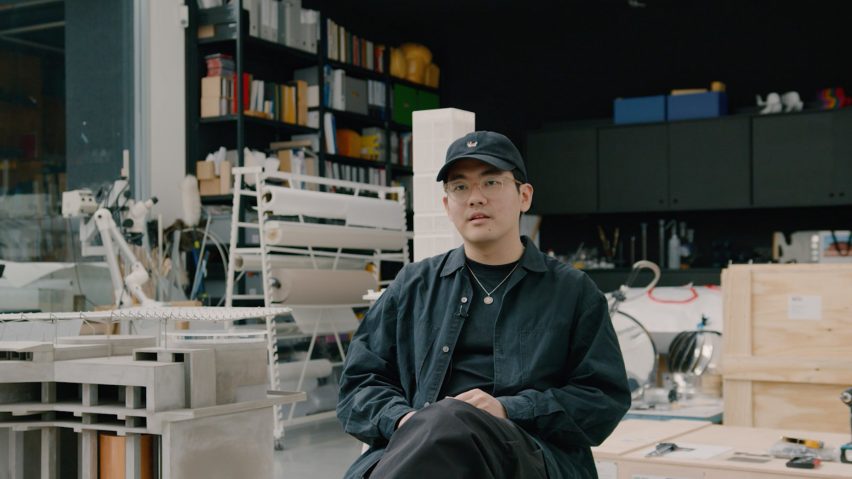Promotion: the Rimowa Design Prize has announced seven finalists for its second annual award, with a winner set to be crowned at a ceremony during Berlin Design Week later this month.
Awarded by the German brand Rimowa, the annual student competition aims to "define a new voice for the German design industry".
Rimowa has announced the shortlist for its design prize
The selected submissions for the award which has a prize pot of €50,000, include an adaptable floating platform, a participatory waste collection trolley and a wearable safety device.
A winner will be announced on 29 April during a ceremony at the David Chipperfield-designed James Simon Galerie in central Berlin. The overall winner will receive €20,000, with a special mention receiving €10,000 and the remaining finalists receiving €5,000 each.
For the second edition of the Rimowa Design Prize, the students were challenged to consider the future of mobility in line with the brand's ethos.
Each project was created specifically for the competition and was judged on their creativity, ingenuity, timelessness and impact.
"Mobility is underpinned by values of freedom and support, while acknowledging Rimowa's tenets of resilience, excellence and quality which assure that all designs are created to provide a fulfilling purpose," explained the prize.
"Capable of being interpreted and reconfigured in a seemingly endless number of ways, it is important to consider what mobility means to everyone, and not just those who are able."
The seven finalists were selected from a shortlist of 21 who have been mentored by leading experts in the world of design since the start of the year.
Ahead of the winner's announcement later this month, the finalists are now engaged in a period of hands-on learning.
While each student, or partnership, focused on mobility, the finalists produced an extremely broad range of interpretations of the theme.
Many of the finalists' projects focus on inclusivity in design including Saar College of Fine Arts students Luise Kempf and Dean Weigand, who created Unnorm which is described as "an inclusive and adaptable environment where individuals of all abilities can come together".
Several of the finalists created wearable devices including SRH Berlin University of Applied Sciences student Daniela Lindenberga who designed the IXO, a wearable safety device that contains tools including a torch, camera, microphone, speaker and GPS tracker.
Finalist Janne Kreimer from Anhalt University made the Ro waistcoat from TPU-coated nylon fabric, which incorporates soft robots and aims to combat anxiety.
Also from Anhalt University, Angelicka Barbie and Sarah Eckerlein designed the Epilepsense head mesh, which measures brain waves to help those who live with epilepsy.
The remaining projects include the Strollect rental trolley, which was designed by Pascal Schwientek and Jasmin Kappler from the Potsdam University of Applied Sciences to encourage participatory waste collection.
Schwäbisch Gmünd University of Design students Dominic Hahn and Franziska Dehm created Float Mobility as an alternative to current water vehicles.
Fengfan Yang from the State Academy of Fine Arts Stuttgart's finalist project was Hang On, a piece of furniture for public spaces that aims to reconsider the table.
The judging panel consisted of Alexandre Arnault, Rimowa's chairman; Hugues Bonnet-Masimbert, Rimowa's CEO; Susanne Graner, head of collection and archive at Vitra Design Museum; Sebastian Herkner, designer at Sebastian Herkner Studio; Matthias Kulla, director design management sports cars at Porsche; Regine Leibinger, co-founder of Barkow Leibinger; Andreas Murkudis, founder of Andreas Murkudis; Nina Sieverding and Anton Rahlwes, founders and editors at The Thing magazine; and Benjamin Wilson, communications director at Braun.
Discover more info on the finalists' projects and find out the winner on 29 April here.
Photography is by CNP for Rimowa.
Partnership content
This article was written by Dezeen for Rimowa as part of a partnership. Find out more about Dezeen partnership content here.

